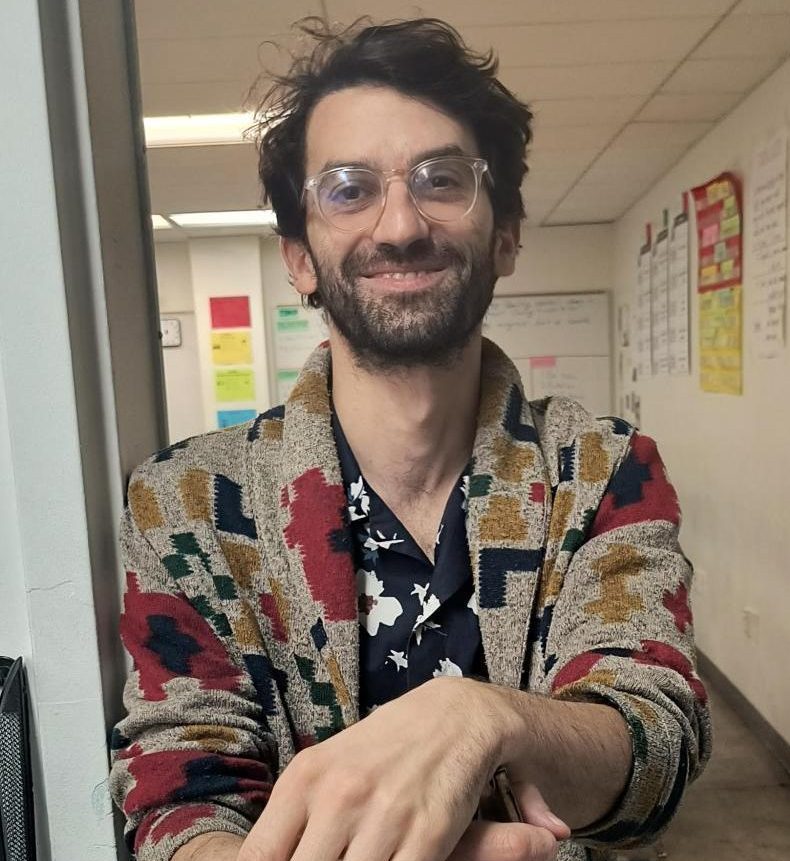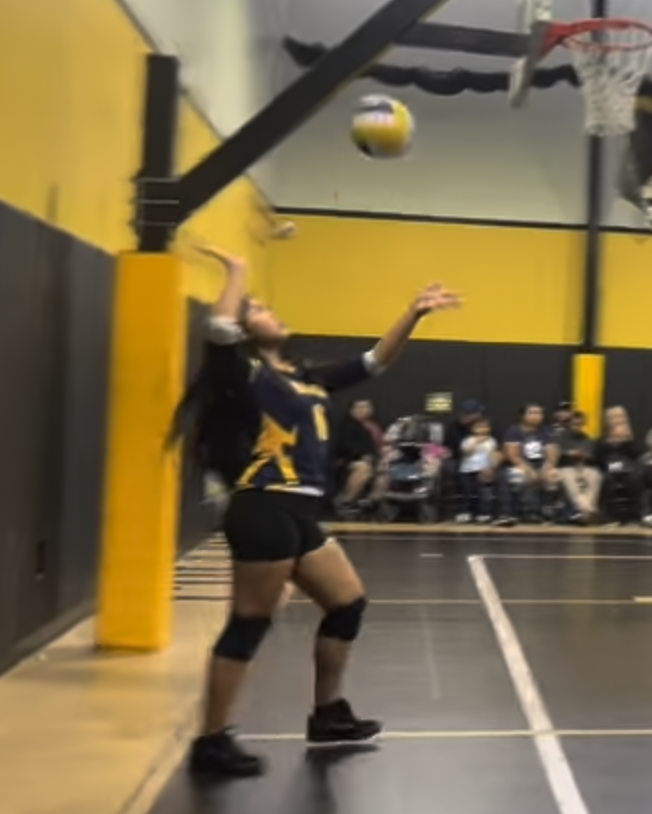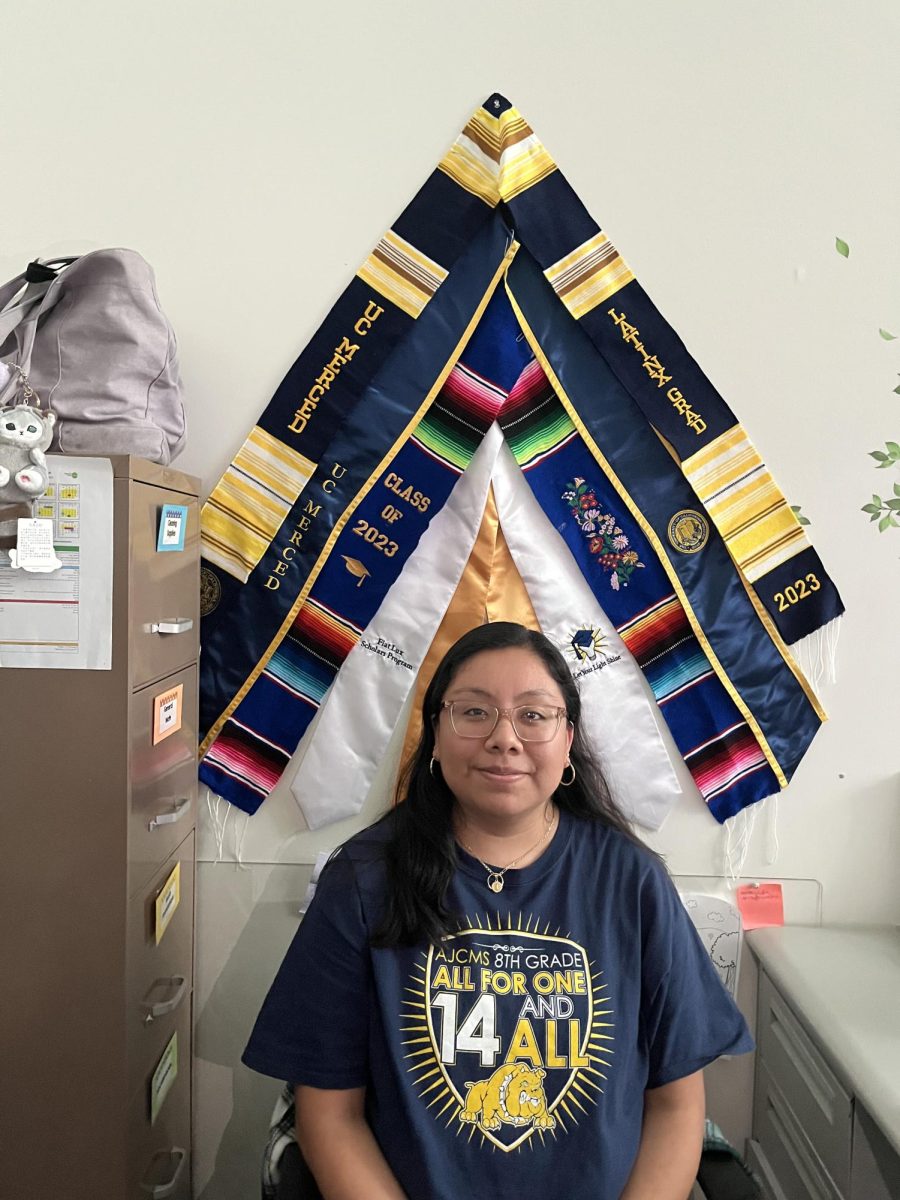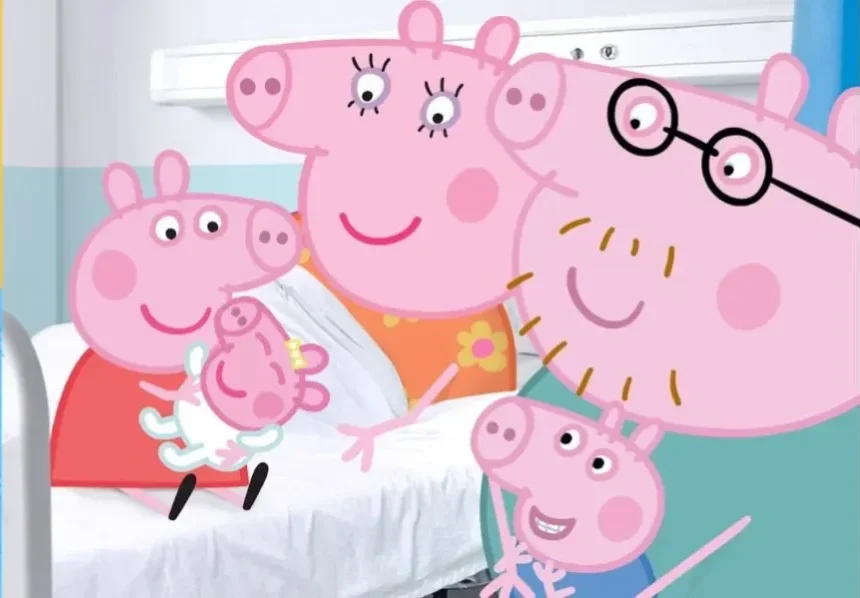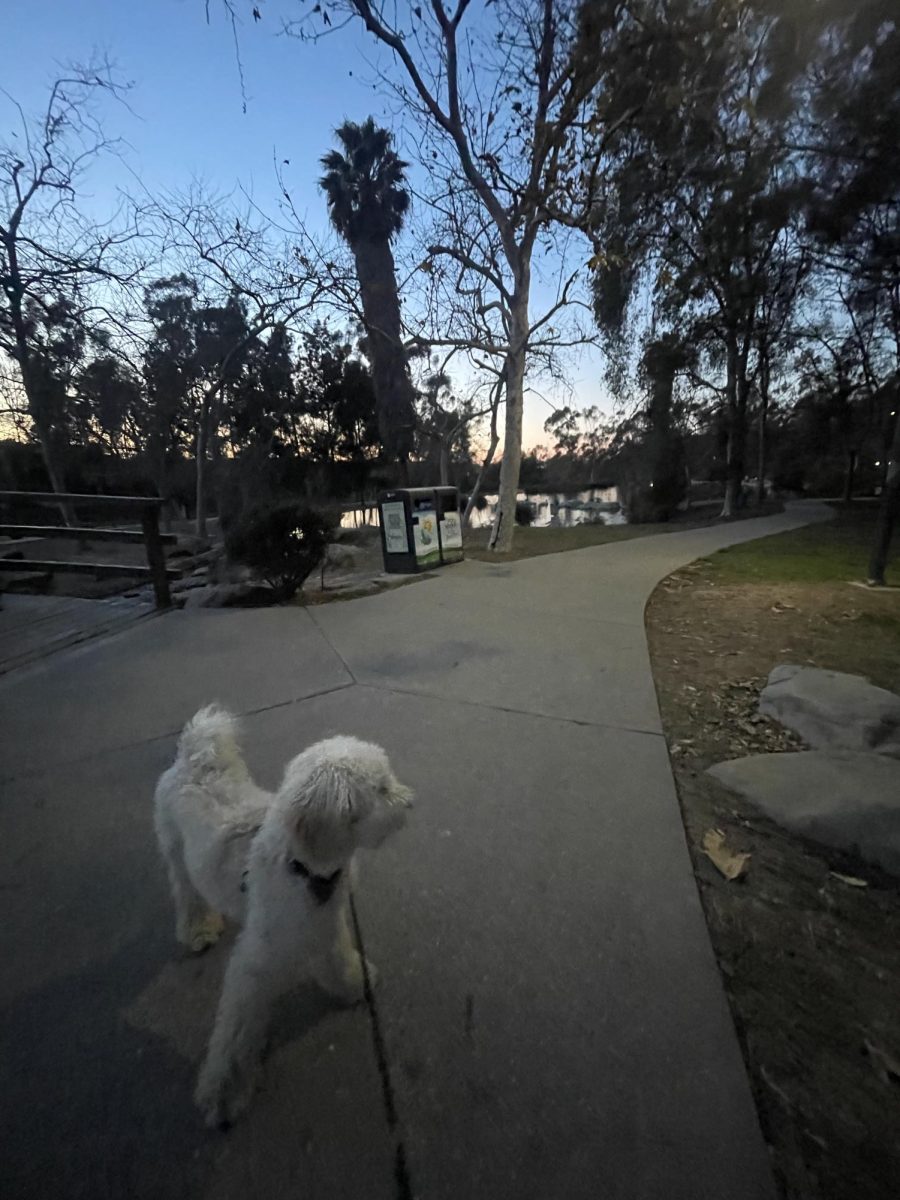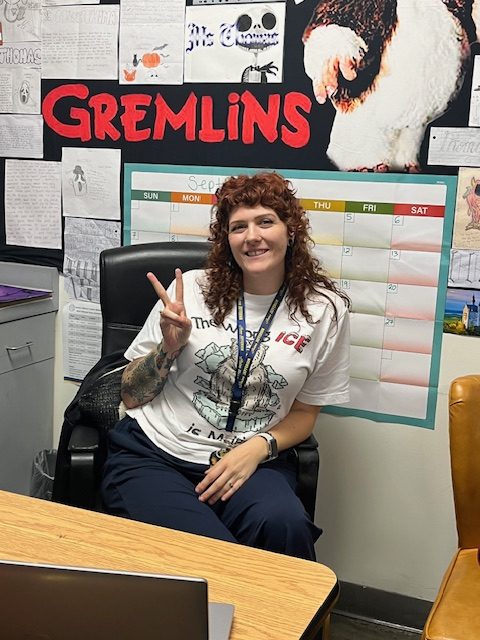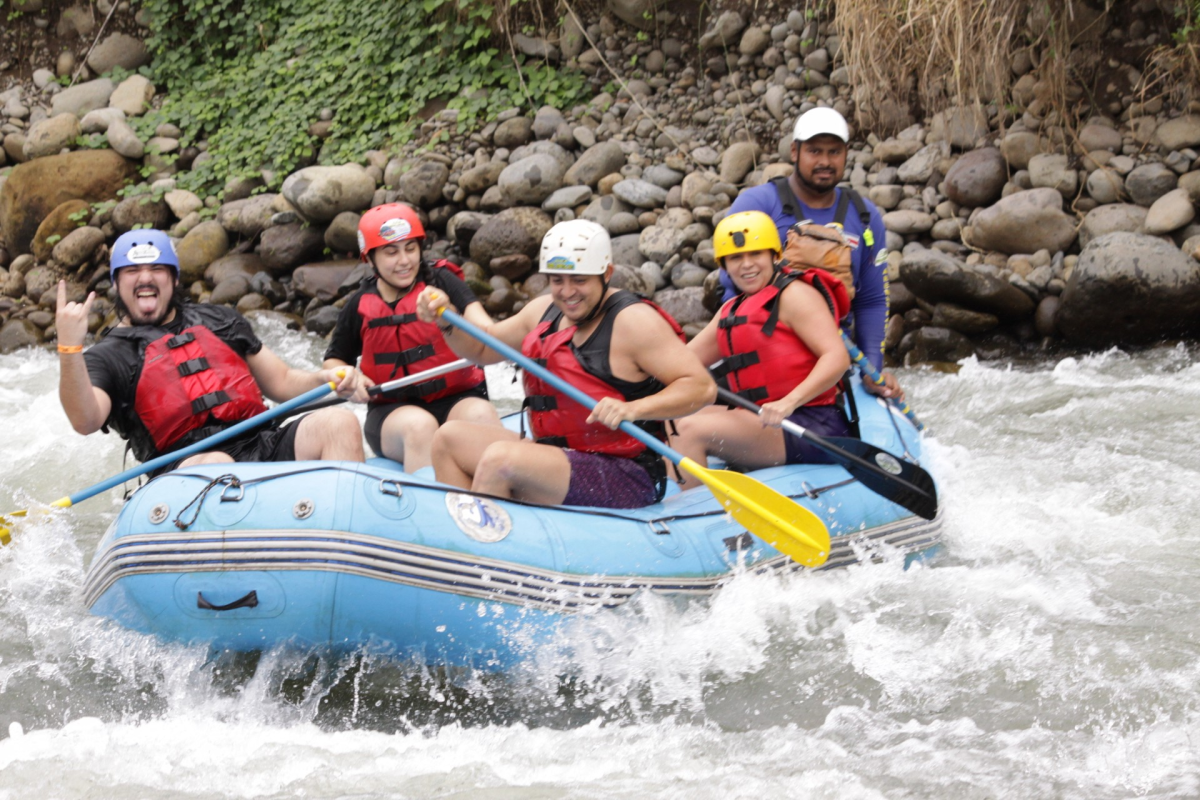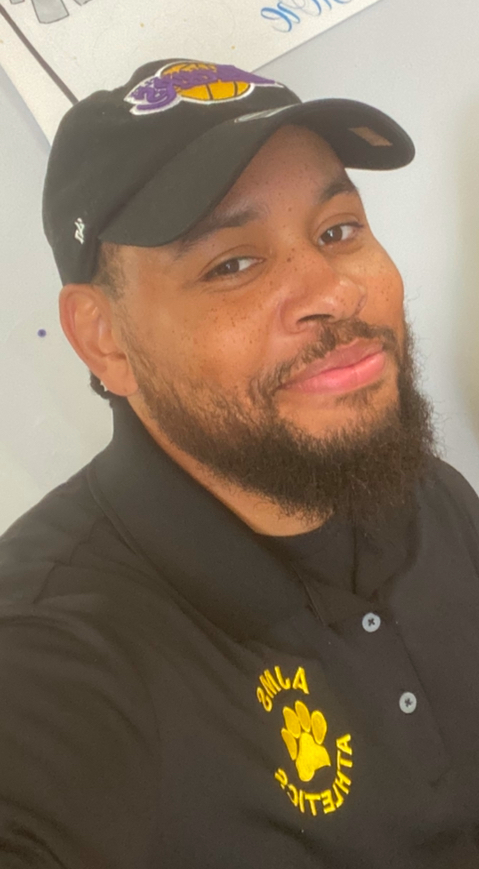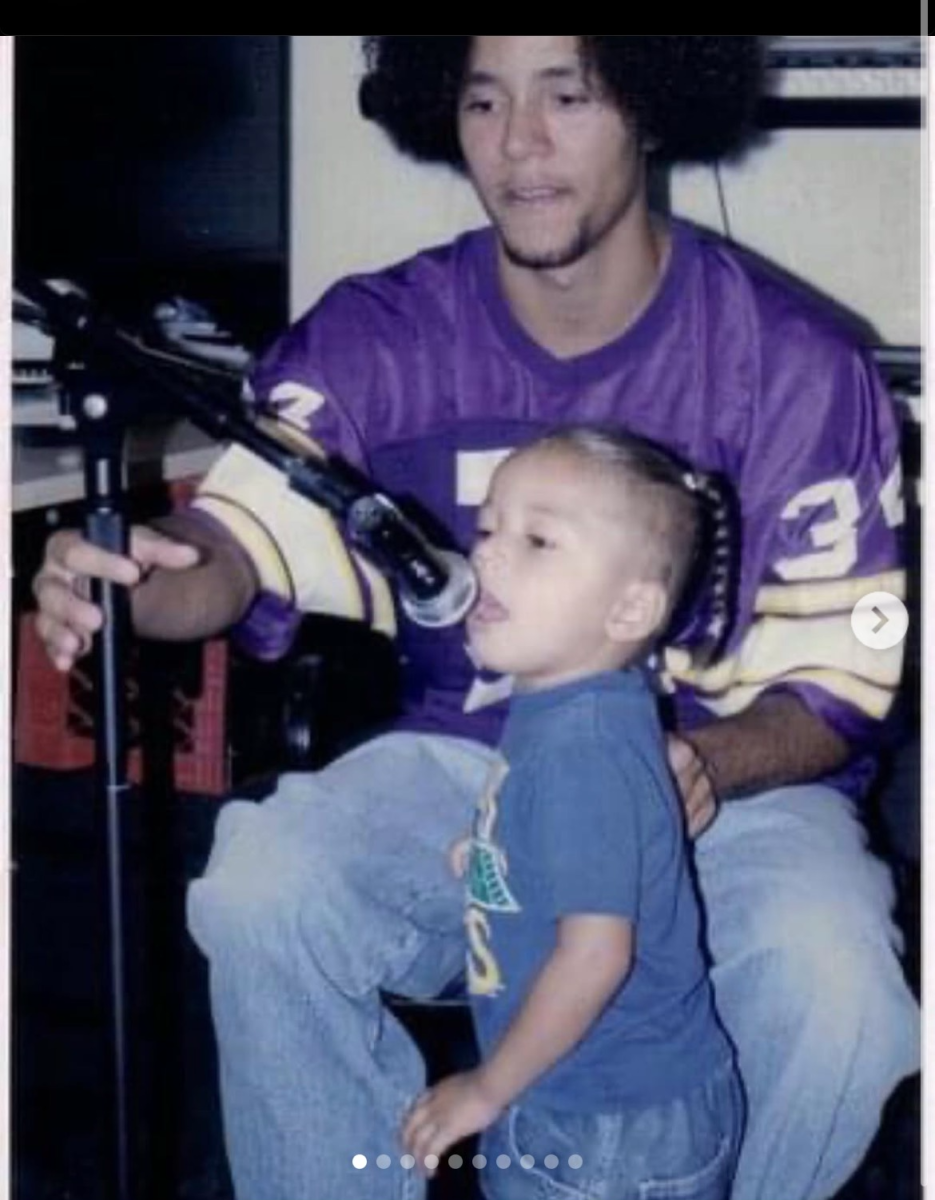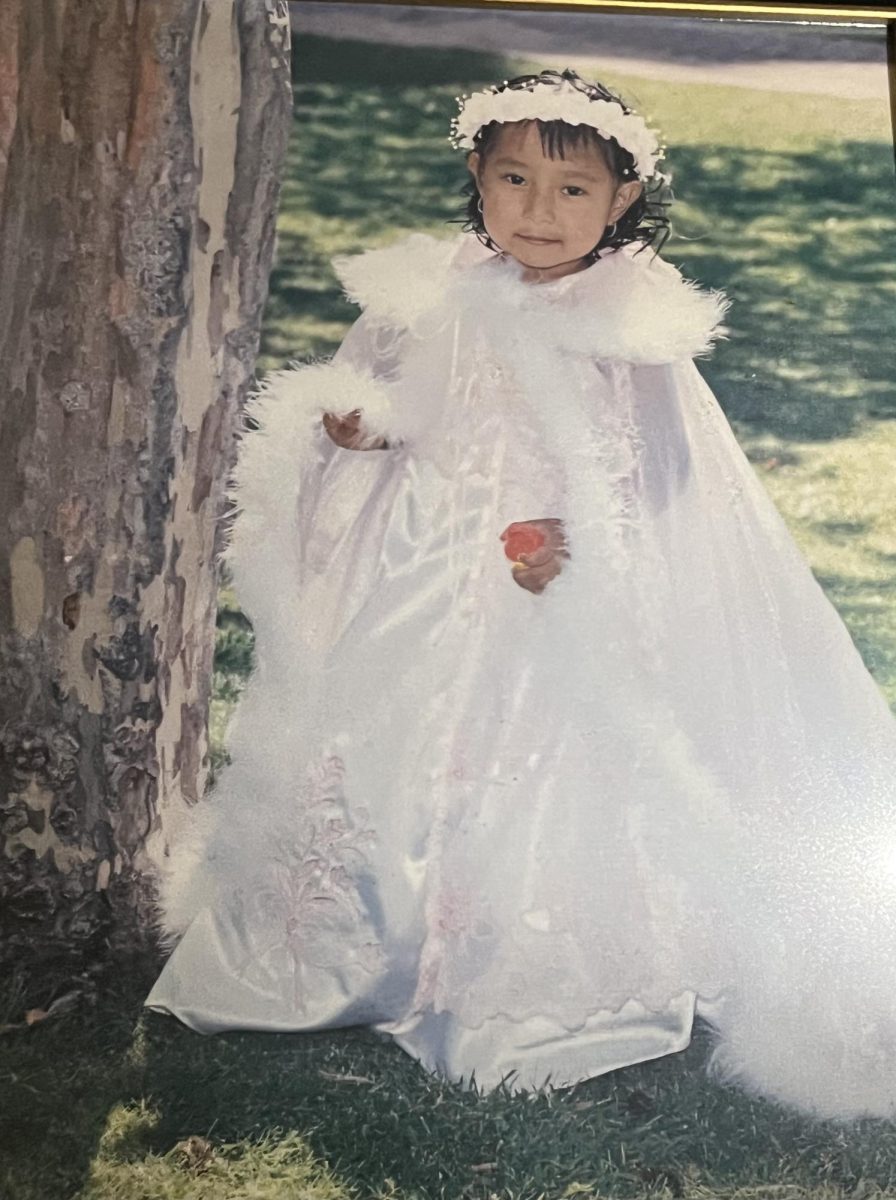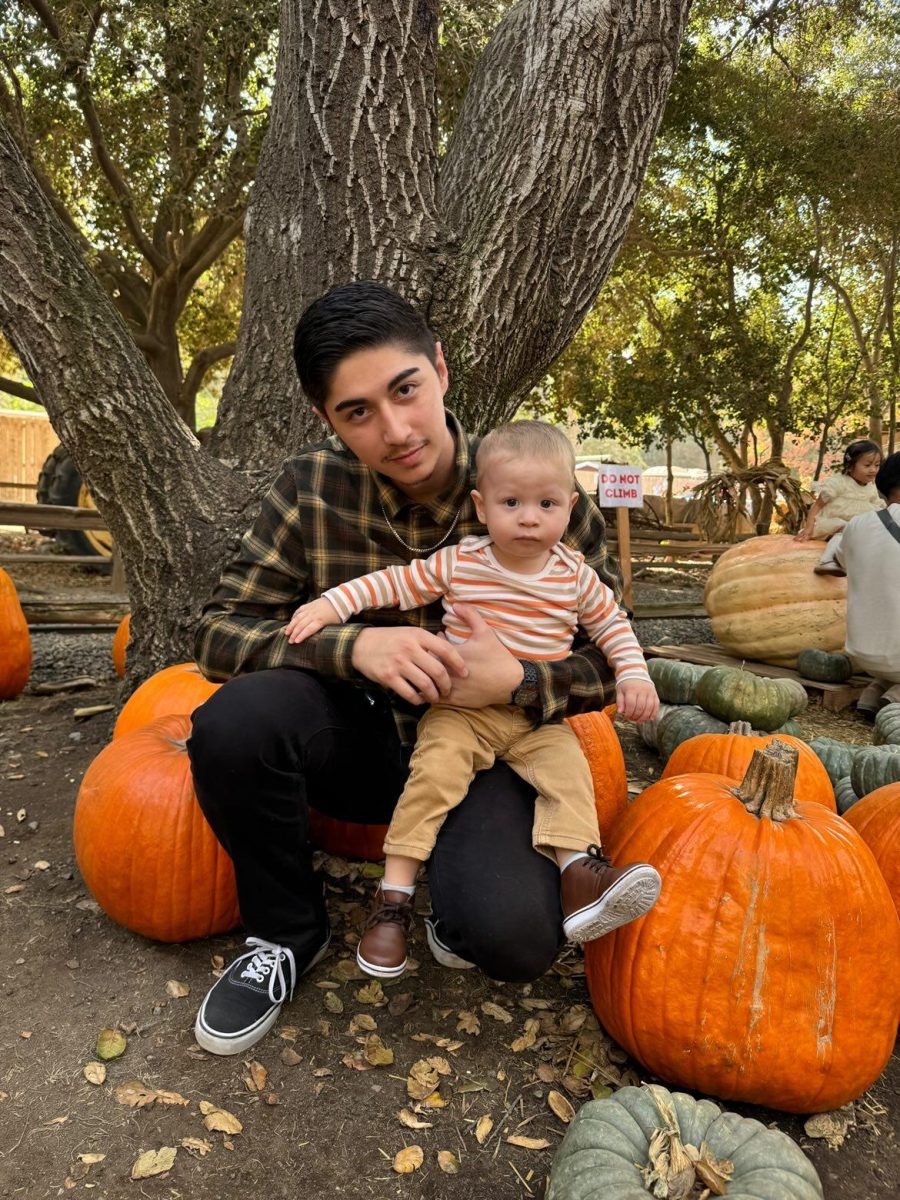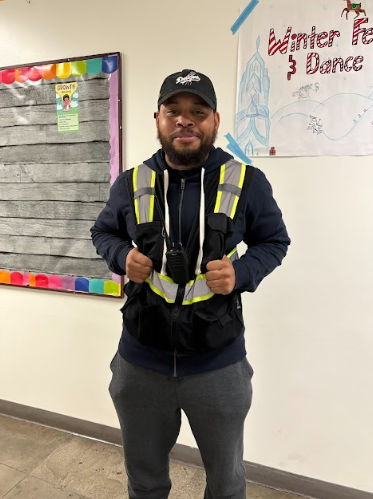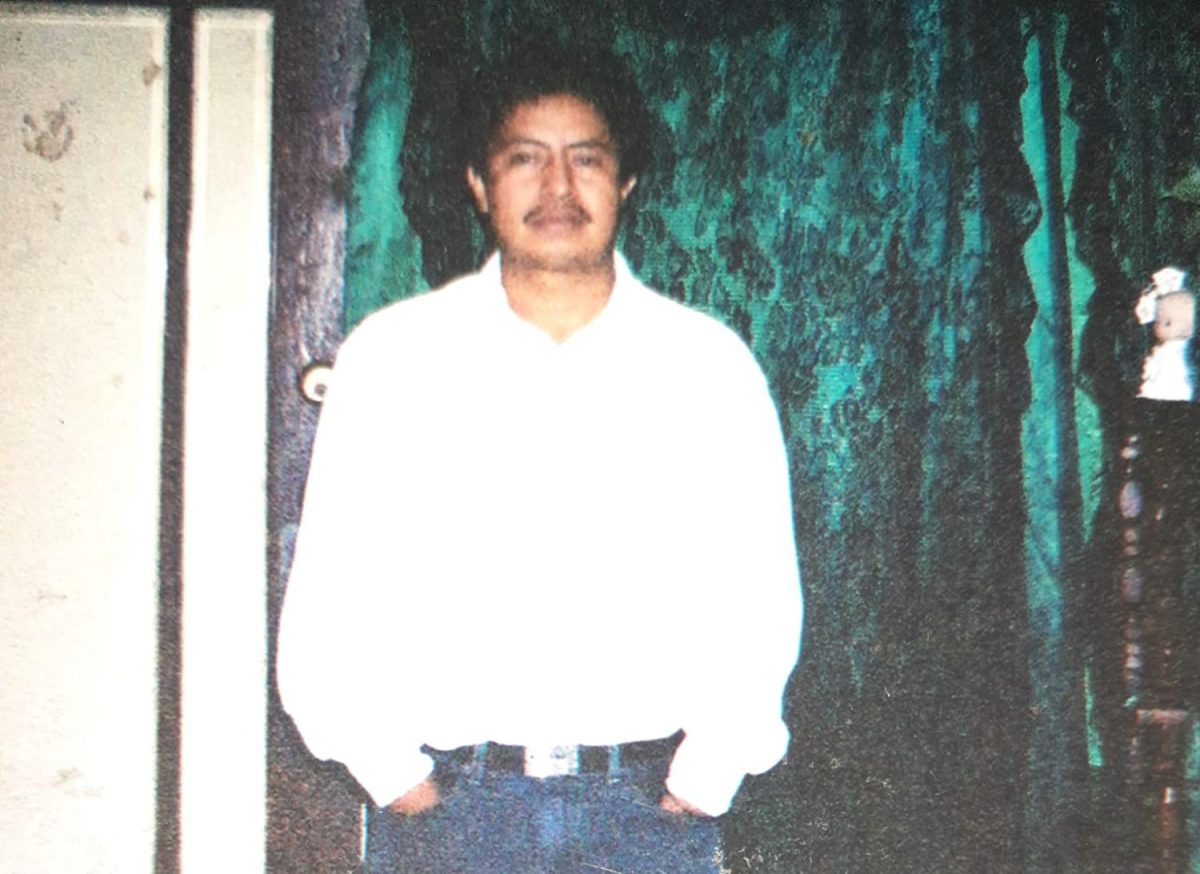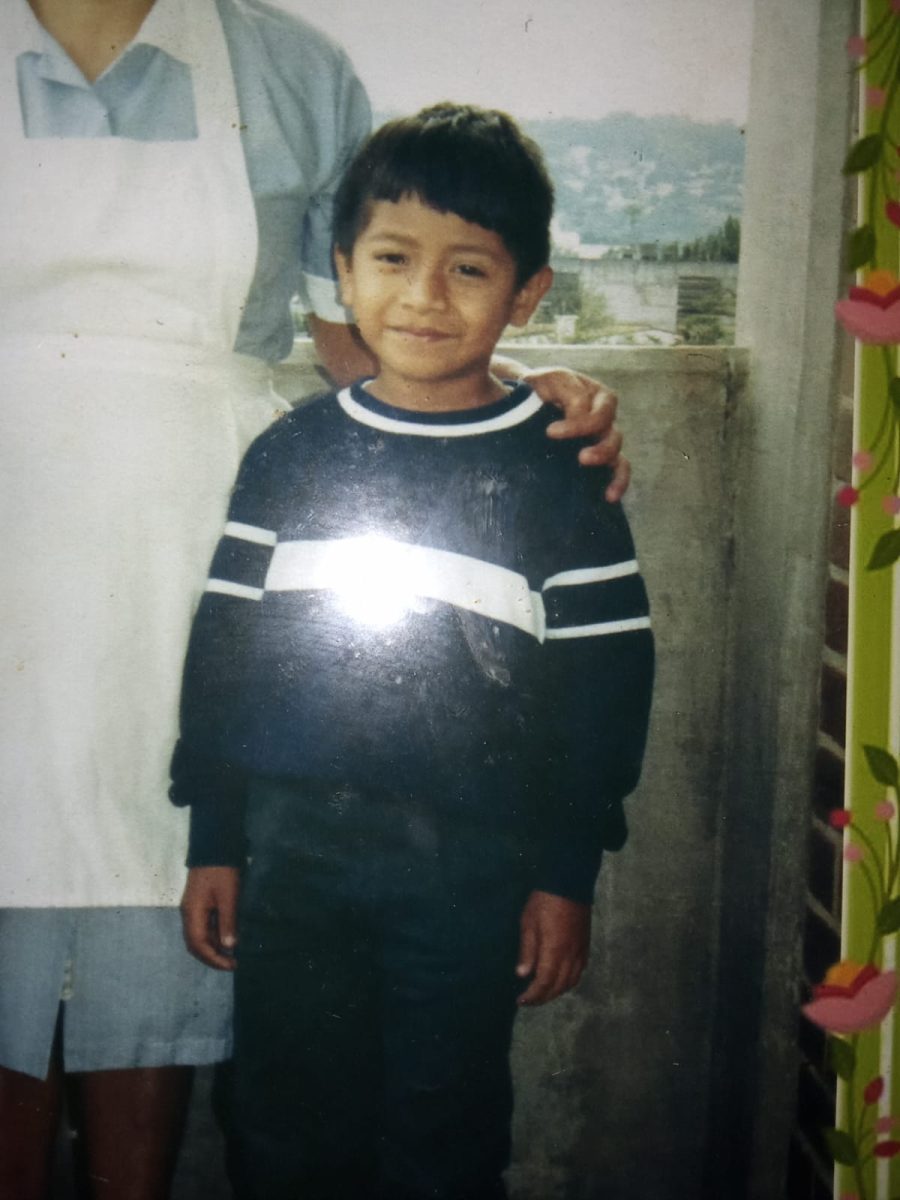Jeremy Farkas is a teacher at AJMS and talks about how he got to being a teacher. He also talks about what his first job was before being a teacher. He also talks about the job he wanted, and talks about how he was in school. Mr Farkas also gives advice to people that are going to middle school for the first time.
TRANSCRIPT:
Erik Ramirez: Okay, well, for the first question, how about you, can you tell me somebody who had a big influence on you in your life?
Jeremy Farkas: Yeah, I can’t believe I’m not immediately ready with someone on the top of my head, someone who had a big influence on me was, I mean, my mom and dad definitely, I follow kind of their examples and a lot of things. My mom was a public school teacher for many years, also off and on. And I find that a lot of the time when I’m teaching, what I’m actually doing is an impression of my mom, my tone of voice, eyebrow, things, all that kind of stuff. I realized, Oh, I’m just, I’m just doing my mom right now. I’m doing a stand up bit. I’m doing an impression of my mother, and who’s another person who had a big influence on me, the name that keeps coming to mind is Carmelo Anthony, but he was on the New York Knicks, and I don’t know him personally, so I think I can leave it at, let’s say my mom as a as a teacher, she had a big influence on me.
ER: Do you think that you becoming a teacher was influenced by your mom when you were growing up?
JF: Yeah, I think not directly. I wasn’t thinking like, oh, I want to be like my mom, but I think that her, like seeing kind of that part of her life while I was growing up, and kind of just taking a lot of things from who she is, I made that, put that in the back of my head as like, oh, that’s something to be that’s something that like, that I could do. But I became a teacher because I was in a before I was teaching, I was in it, I was working with computers, and I was writing also and working with technology was like a day job that was threatening to become like a real grown up career. I was looking around at my desk in my cubicle and going, I hate this. I hate everything about this. I hate computers. I hate programming computers. I hate working in an office. I don’t want to do this for the rest of my life, and so I quit to go back to school and become a teacher.
ER: When you were in college, did you want to be like an IT person or like a teacher?
JF: My degree is in film and electronic arts was what it was called, but I so I learned to photograph, I learned a lot about photography. I learned to shoot movies, learned to edit. I learned all the kind of technology and craft behind doing that. And I also wound up taking a lot of literature and classics courses, but and a little bit of everything else too. But so when I first moved to LA I was working on sets, I was writing, I was doing different things and on like movie sets and TV sets, and working with tech was sort of a day job that I was paying the bills while doing that stuff, and that was then threatening to take over. I said, You know what? I’m gonna I’m gonna change the tracks the train is on and become a teacher.
ER: When you first became a teacher, did you feel like, you know, you would leave an impression, like you said that your mom did?
JF: I certainly hope a good one. That’s kind of why I switched into teaching. Was I was thinking like there were things I liked about working with technology and computers. It’s challenging. There’s puzzles to solve, but it’s fun to become an expert in something and have a skill that you’re able to do. But I’m looking around going, none of this matters. None of this is something I’m actually going to care about, and if I’m not working in movies where I originally wanted, I’m at least going to do something that I’m picking intentionally and is something that has an influence on the world outside of myself and I’ve I think I found that.
ER: You think you found that in teaching?
JF: Yeah, some days more successfully than others, but you know, as I’ve grown older, especially having something outside of myself and my immediate wants and needs to care about and to be meaningful in the world has become really important. Uh, a career that means something outside of my own life, my family, things like that, that that are something outside of myself. That’s like, oh, this is, this is actually the thing that matters.
ER: Do you want to leave an impression in the world, like, maybe help influence somebody to do something great one day?
JF: I would, I would hope so. Yeah, I don’t think that’s something that I don’t know. It’s not something that I feel like, yeah, no, definitely sorry. Let me back that up, yeah, yeah, for sure.
ER: Your goal as a teacher is you want to influence somebody to maybe do something really good one day?
JF: I would love to influence all of my students to find something great within themselves, and to do something to have opportunities and for themselves And in approach to the world that’s critical and thoughtful and engaged, and to where they’re going out into the world and feeling like, oh, there’s a world that’s out here for me that I can become a part of not just living in, but creating, making things, writing things, doing things, going on to the world, and making it their own through as an English teacher, through language, but in all kinds of, really, in all ways.
ER: When you first started teaching, was this the first school that you taught at? Or did you teach (somewhere else?)
JF: I student taught at a school in El Monte; that was during the pandemic. And then after that, I took my job at Jefferson, and I’ve been here ever since. So this is my fifth year at Jefferson.
ER: Your fifth year?
JF: Yeah.
ER: What do you think about the students here at Jefferson?
JF: It’s fun. Middle school is a ton of fun. Um, I mean, you know, it’s middle school. I, I was, you know, I remember middle school being a hectic time in my own life, right? I laugh every day. I’m surprised every day. And you know, some days are more challenging than others, and it’s middle school. We go through all kinds of different stuff in different ways. But I think the students here are great. I have a ton of fun every day.
ER: Do you feel like, do you want to stay here for a little bit more? Like, do you want to stay for like, the rest of your career as a teacher?
JF: It’s impossible to know kind of which way those like, winds are going to blow, but I don’t have any plans to go anywhere. No, I’m really happy here, and I don’t feel like my work here is done. I feel like I keep getting better at what I’m doing every year and still have a lot of room also of things well next year, this is what I want to do differently, and this is how this year. So far right now, I’m not completely the teacher I want to be, and so next year we’ll do a little better. And so I don’t have any, I don’t have any plans to go anywhere.
ER: Do you feel like you making that decision to switch from, you know, working with computer and stuff and being a teacher was a really good decision that you made. Do you not regret it?
JF: Yeah, no, I wouldn’t look back for a second. I’m really glad of the choice I made, for sure.
ER: If you were a kid and like you had to tell yourself, like you could talk to yourself for just a little bit, like maybe a minute, what would you tell yourself?
JF: I would tell myself, that depending on what age I was at, but like my middle school self, I would tell them that everyone else is going through the same stuff. It just doesn’t look that way. My more grown up, like teenager, 20 something self, I would tell to be more intentional about the things that I’m doing and set real goals for myself that I’m working towards. Because right now, I found myself in a place that I really liked, but it took a long time to get there. And I would tell myself, looking back at like my teens and 20s to set some more concrete goals and really work on like, Okay, what’s the next step I need to take to get there.
[Off record]
ER: In this interview, since I can know you talked about how you were in middle school. Do you have any advice for like, sixth graders coming into AJMs right now?
JF: Okay, so back on the record. My advice for sixth graders now is to be a person you’re going to look back on and be proud of the choices you made.
ER: Okay, that’s actually a really good a message honestly, because you know, we only have one life, and I feel like that message of just making sure that you’re a person that you’re going to be happy on looking back on is, you know, really good message.
JF: Yeah, well, I feel like it’s easy, especially in middle school, to get caught up in, like, going along with something the crowd is doing, or making a choice that’s safe. Everyone else is laughing at this kid. I’m going to laugh at them too. Or my friend just told a mean joke. I’m going to try telling a mean joke too, and see what it sounds like, see if people laugh, and then we look back on those choices and we go, Oh, I really shouldn’t I wasn’t the person I actually wanted to be then. But we also get to grow from those experiences too. We’re all going to have those experiences.
ER: Thank you for this interview.
JF: Thanks, Erik.
ER: I hope you have a good day.
JF: You too. Have a great day.
